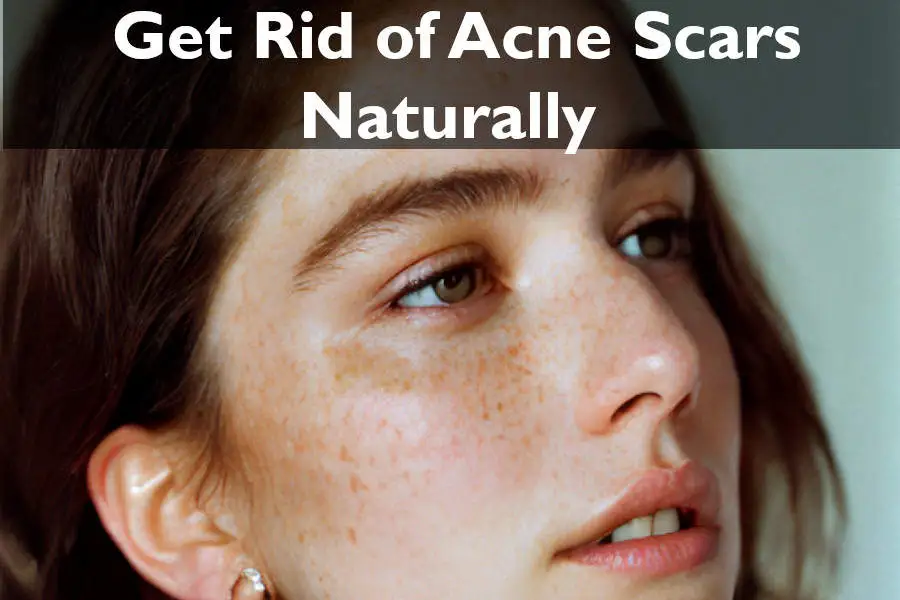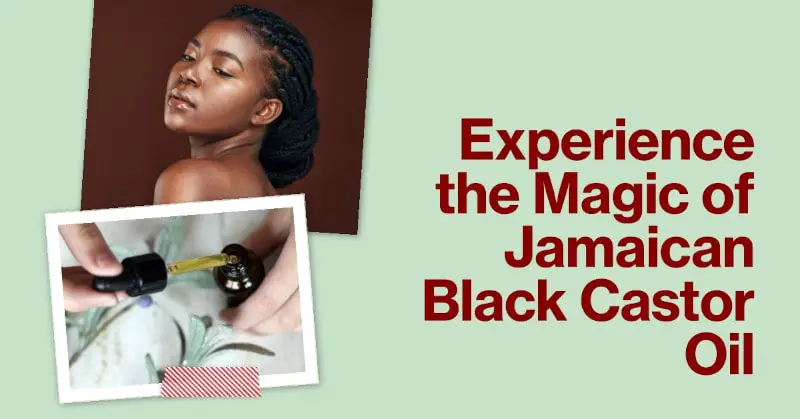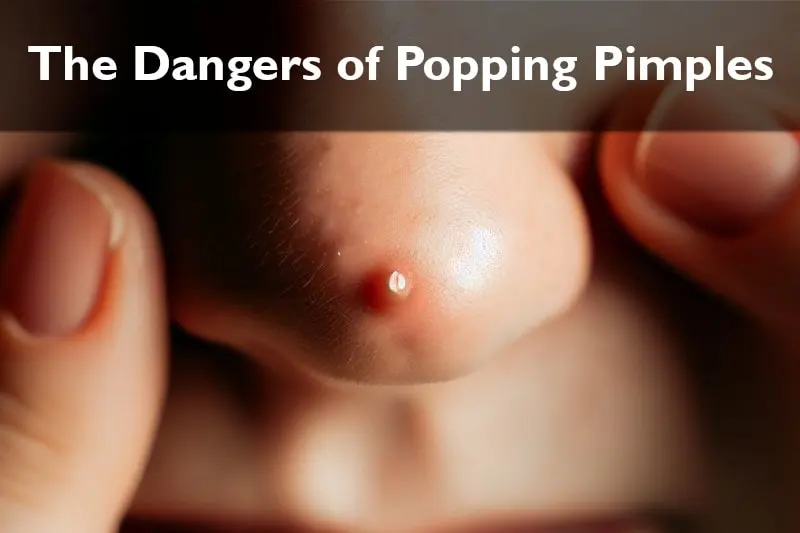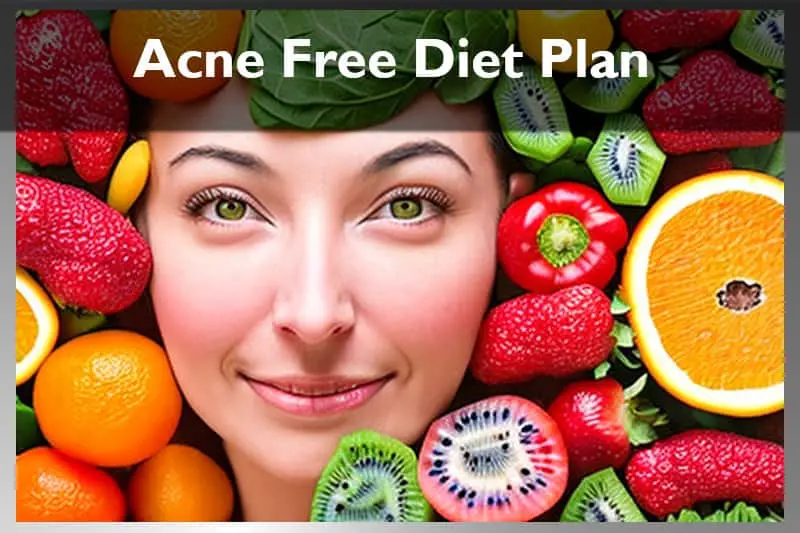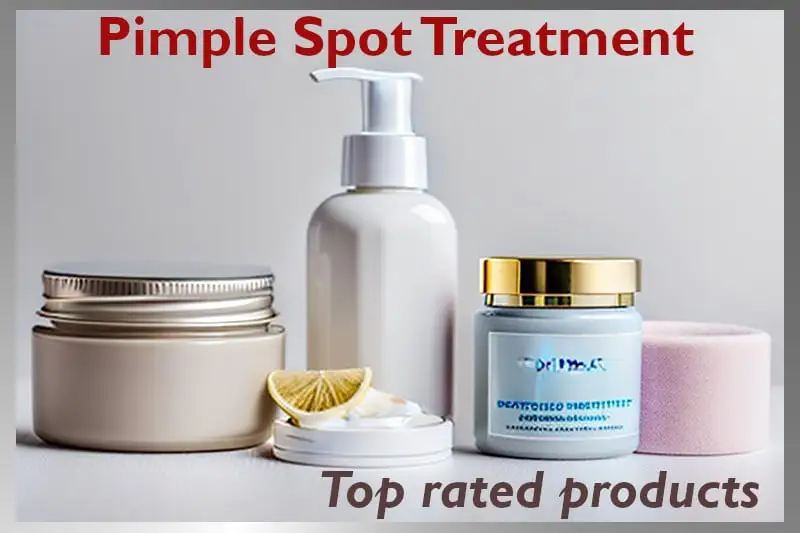5 Natural Remedies for Pimples: For Your Blemish Free Skin
In the pursuit of radiant, healthy skin, few things can be as vexing as the sudden appearance of pimples. These tiny, sometimes not-so-tiny, blemishes have a knack for showing up at the most inconvenient times, seemingly out of nowhere, and can have a significant impact on our skin health and overall confidence.
Pimples, often referred to as acne or zits, are a common skin concern that can affect individuals of all ages. They manifest as red, swollen bumps on the skin’s surface, and in some cases, they can be painful. While they might seem like a temporary annoyance, pimples can leave behind lasting scars and, more importantly, indicate underlying issues with our skin health.
These unsightly eruptions often prompt individuals to seek solutions that not only address the immediate problem but also promote long-term skin vitality. For those who prefer a holistic and gentle approach, the natural remedies for pimples hold promise.
For healthy and clear skin, the allure of natural remedies has gained immense popularity. Many individuals are drawn to these remedies because they not only offer potential relief from pimples but also align with a holistic approach to wellness. Natural treatments are often perceived as gentler on the skin, with fewer side effects compared to their chemical counterparts.
In this comprehensive guide, we’ll explore a range of natural remedies for pimples that can help you achieve clear and vibrant skin without harsh chemicals or invasive procedures.
Understanding Pimples
Pimples, those pesky skin blemishes that can pop up when you least expect them, often leave us wondering about their origins and how to deal with them effectively. In this section, we shed light on what they are, how they develop, and why opting for gentle and natural treatments can be the key to maintaining healthy, radiant skin.
What Are Pimples? : Pimples, scientifically known as acne vulgaris, are a common skin condition that plagues people of all ages and backgrounds. These small, often red and inflamed, bumps on the skin’s surface occur when hair follicles become obstructed with a combination of excess oil, dead skin cells, and sometimes bacteria. It’s this blocked environment that sets the stage for pimple formation.
How Do Pimples Develop?: Pimple development is a multi-step process that usually begins with the overproduction of sebum, the skin’s natural oil. When excess sebum combines with dead skin cells, it can clog hair follicles or pores. This clogging creates a breeding ground for Propionibacterium acnes (P. acnes), a type of bacteria that naturally resides on the skin.
Pimples can appear on your face, nose, lips, and other parts of your body. Pimples may last for more than a week, depending on the severity.
Factors Contributing to Pimple Formation
Several factors can contribute to the formation of pimples:
- Hormonal Fluctuations: Hormonal changes, such as those during puberty, menstrual cycles, pregnancy, or stress, can increase sebum production and make the skin more susceptible to pimples.
- Excessive Sebum Production: Individuals with naturally oilier skin are more prone to pimples due to increased sebum production.
- Diet: While the relationship between diet and pimples is still debated, certain foods with a high glycemic index or dairy products may exacerbate acne in some individuals.
- Genetics: If your parents or siblings had a history of acne, you may be more predisposed to developing pimples.
- Environmental Factors: Exposure to pollution and humid conditions can contribute to clogged pores and acne formation.
- Urge to pop pimples: Popping pimples may cause more harm than good for your skin. It also can spread the infection and increase the formation of more pimples.
The Need for Gentle and Natural Treatments
Understanding the root causes of pimples underscores the importance of treating them with care and gentleness. Harsh or aggressive treatments can strip the skin of its natural moisture, leading to irritation and potentially worsening the condition.
This is where the appeal of natural remedies for pimples truly shines. By opting for gentle, natural alternatives, you can address the problem without causing undue harm to your skin. These remedies not only target the symptoms but also promote overall skin health, ensuring a balanced and vibrant complexion.
Gentle and Nurturing: One of the foremost advantages of using natural remedies for pimples is their gentle and nurturing nature. Unlike chemical spot treatments, which can be harsh and abrasive on the skin, natural alternatives work in harmony with your skin’s natural balance. This gentle approach means that they are less likely to cause irritation, redness, or peeling, making them suitable for individuals with sensitive skin.
Minimal Risk of Side Effects: Natural remedies for pimples typically carry a significantly lower risk of side effects compared to their chemical counterparts. Chemical treatments often contain harsh ingredients that can disrupt the skin’s natural barrier and lead to adverse reactions. In contrast, natural remedies rely on ingredients sourced directly from nature, which are less likely to cause allergic reactions or other unwanted side effects.
Nourishing Ingredients for Skin Health: Natural remedies often harness the power of ingredients known for their skin-nourishing properties. Ingredients like aloe vera, tea tree oil, and honey have been used for centuries to promote healthy skin. These natural components not only help in the treatment of pimples but also contribute to overall skin health. They can moisturize, soothe, and rejuvenate the skin, leaving it looking and feeling its best.
Promoting Gentle Skincare: The concept of gentle skincare is at the heart of natural remedies for pimples. These remedies emphasize the importance of treating your skin with care and respect. Instead of harsh chemicals that can strip away essential oils and disrupt the skin’s balance, natural remedies encourage a kinder, more harmonious approach to skincare. This approach focuses on supporting the skin’s natural processes and maintaining its integrity.
Natural Skincare Benefits: Beyond addressing pimples, natural remedies offer a multitude of skincare benefits. They can help reduce the appearance of scars, improving skin texture, and even preventing future breakouts. Plus, the peace of mind that comes with knowing you’re using pure, natural ingredients on your skin is priceless.
Effective Natural Remedies for Pimples

Now that we’ve explored the benefits of natural remedies for pimples, let’s see the most effective natural treatments that can help you combat those pesky blemishes. These remedies, derived from nature’s bounty, not only target pimples but also promote overall skin health. Below, we’ll introduce you to five potent natural alternatives and provide step-by-step instructions on how to use them effectively.
1. Tea Tree Oil
What is it: Tea tree oil is derived from the leaves of the tea tree (Melaleuca alternifolia), a native plant in Australia. It’s renowned for its potent antimicrobial properties.
How it works: Tea tree oil’s antimicrobial and anti-inflammatory properties make it an excellent choice for treating pimples. It helps kill acne-causing bacteria and reduce redness and swelling.
How to use it:
- Dilute tea tree oil with a carrier oil (such as jojoba or coconut oil) to prevent skin irritation. Mix one part tea tree oil with nine parts carrier oil.
- Apply the diluted mixture to the affected areas using a cotton swab or clean fingertip.
- Leave it on for a few hours or overnight, and then rinse off with water.
- Repeat this process daily until the pimple subsides.
2. Aloe Vera Gel
What is it: Aloe vera is a succulent plant known for its soothing and healing properties. The gel extracted from its leaves is used in various skincare products.
How it works: Aloe vera gel has anti-inflammatory and wound-healing properties, making it ideal for reducing pimple redness and promoting skin recovery.
How to use it:
- Extract fresh aloe vera gel from a leaf or use store-bought aloe vera gel.
- Apply a thin layer of the gel directly to the pimple and the surrounding area.
- Leave it on for about 30 minutes to an hour, then rinse with water.
- Repeat this process two to three times daily until the pimple heals.
3. Honey and Cinnamon Mask
What is it: A combination of honey and cinnamon is a classic remedy for various skin issues. Honey has antibacterial properties, while cinnamon is known for its antimicrobial and anti-inflammatory effects.
How it works: This mask can help reduce the growth of acne-causing bacteria and soothe inflammation.
How to use it:
- Mix one tablespoon of honey with half a teaspoon of cinnamon powder to create a paste.
- Apply the paste to the pimple-affected areas and leave it on for 10-15 minutes.
- Rinse with warm water and pat your skin dry.
- Use this mask two to three times a week for the best results.
4. Green Tea Extract
What is it: Green tea is rich in antioxidants and has anti-inflammatory properties. It is available in various forms, including tea bags and extracts.
How it works: Green tea extract can help reduce inflammation and control sebum production, making it effective for treating and preventing pimples.
How to use it:
- Brew a cup of green tea and allow it to cool.
- Soak a cotton ball in the cooled tea and gently apply it to your face or pimple-affected areas.
- Leave it on for about 10-15 minutes, then rinse with water.
- You can also use green tea extract in skincare products or make a green tea toner to incorporate it into your daily routine.
5. Lavender Oil
What is it: Lavender oil is an essential oil derived from lavender flowers. It is known for its soothing and antibacterial properties.
How it works: Lavender oil can help reduce inflammation and promote the healing of pimples. Its pleasant fragrance can also have a calming effect.
How to use it:
- Dilute lavender oil with a carrier oil, similar to tea tree oil, to prevent skin irritation. Use one to two drops of lavender oil per teaspoon of carrier oil.
- Apply the diluted mixture to the pimple-affected areas.
- Leave it on overnight, and rinse off in the morning.
You can also add a drop or two of lavender oil to your regular moisturizer to enjoy its benefits.
Incorporating these natural remedies into your skincare routine can be a gentle yet effective way to combat pimples. Remember to be consistent, and if you have sensitive skin, perform a patch test before using any new product or remedy. These herbal acne treatments and essential oils for your skin can be powerful allies in your quest for clear, radiant skin.
Using Ice to Calm Red Pimples
If you have a pimple that is red, swollen, or painful, an ice cube can be your best friend. Think of a pimple like a tiny injury; just as you would ice a bumped knee to keep the swelling down, you can do the same for your skin.
Ice works by shrinking the blood vessels under the skin. This helps to “freeze” the inflammation, making the pimple look smaller and less angry. While ice won’t wash away the bacteria, it is a great way to handle the pain and redness quickly.
How to Do It Safely:
To avoid hurting your skin, follow these simple steps:
- Wrap it up: Never put ice directly on your face. Wrap one ice cube in a clean, thin cloth or a paper towel.
- The 1-Minute Rule: Press the wrapped ice gently against the pimple for about one minute.
- Take a break: If your skin feels too cold or numb, take the ice off. Wait a few minutes before trying again.
- Keep it clean: Always wash your face first so you aren’t pressing dirt into your pores.
Why It Works:
When you apply something very cold to a breakout, it numbs the nerves. This is why icing is the best natural remedy for those deep, “blind” pimples that hurt when you touch them. It takes away the “throb” and helps the bump flatten out so it is easier to hide with makeup or concealer.
Harnessing Apple Cider Vinegar for Clearer Skin
Apple cider vinegar (ACV) has long been a staple in natural skincare routines for its ability to target stubborn breakouts. The secret lies in its high concentration of organic acids, such as acetic, lactic, and citric acids, which act as a potent antibacterial agent to help neutralize acne-causing bacteria. Furthermore, the Alpha Hydroxy Acids (AHAs) found in ACV work as a gentle chemical exfoliant, dissolving the dead skin cells that often clog pores and lead to new pimples. By balancing the skin’s natural pH level, ACV can help create an environment where acne is less likely to thrive.
However, because ACV is highly acidic, it must be handled with care to prevent irritation or chemical burns. To safely incorporate it into your routine, follow these steps:
- The Golden Rule of Dilution: Never apply raw ACV directly to your face. Mix one part ACV with at least three to four parts filtered water. For those with sensitive skin, a 1:10 ratio is recommended.
- Targeted Spot Treatment: Dip a cotton swab into your diluted mixture and dab it directly onto the blemish. Leave it on for no more than 10 to 20 seconds, then rinse thoroughly with cool water.
- The Patch Test: Before applying it to an active breakout, test the solution on a small patch of skin on your jawline or inner arm for 24 hours to ensure you don’t have an adverse reaction.
- Hydrate and Protect: ACV can be drying. Always follow up with a non-comedogenic moisturizer and wear SPF during the day, as the exfoliating acids can increase your skin’s sensitivity to the sun.
- Limit Frequency: Advise users to start with 2–3 times per week rather than daily use to monitor for irritation.
- Avoid Broken Skin: Explicitly state that it should never be applied to open, raw, or bleeding pimples, as it can cause extreme pain and worsen inflammation.
- Comparison to Actives: Mention that established treatments like salicylic acid or benzoyl peroxide are safer and more predictable because they come in standardized concentrations.
While ACV can be a helpful DIY tool for occasional spots, it is not a substitute for professional medical advice. If you are dealing with persistent or painful cystic acne, consider consulting a board-certified dermatologist via the American Academy of Dermatology to find a treatment plan tailored to your skin type.
A Quick and Easy Method for Pimples
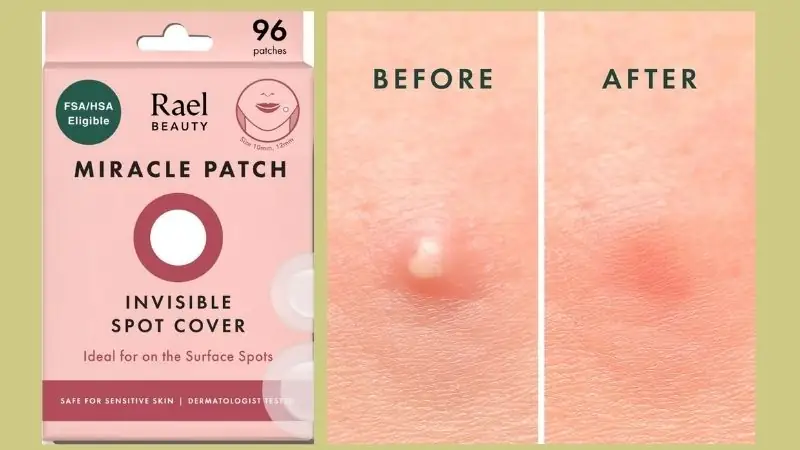
🏆 The Original Award-Winning Acne Patch:
What if there was a way to wake up to clearer, calmer skin without the harshness of popping? Introducing Rael Pimple Patches, a revolutionary patch that harnesses the power of hydrocolloid technology.
This innovative sticker works its magic while you sleep, absorbing impurities and reducing the appearance of pimples. Could this be the secret weapon you’ve been searching for? Stick it on, get your beauty sleep, and prepare to be amazed!
⏱️ See a transformation in just 6-8 hours! Our patch utilizes a medical-grade hydrocolloid material, but what makes it work so fast? This innovative technology acts like a magnet, drawing out the impurities trapped within your pimple.
Clinically tested and free of harsh drugs, it’s safe for all skin types. Unlock the secret to clearer skin – experience the results for yourself!
Lifestyle and Dietary Changes
Achieving clear and radiant skin isn’t just about what you apply topically. Your lifestyle and dietary choices play a significant role in your skin’s overall health. Here are practical recommendations to help you prevent breakouts naturally through Diet and Habits.
Balanced Diet: A diet rich in fruits, vegetables, and whole grains provides essential vitamins and antioxidants that support skin health. Incorporate foods high in vitamin C (such as citrus fruits and strawberries) and vitamin E (found in nuts and seeds) to promote skin rejuvenation.
Limit Sugary and Processed Foods: High-glycemic foods like sugary snacks and processed carbohydrates can trigger an insulin spike, leading to increased oil production and inflammation in the skin. Reduce your intake of these foods to help prevent pimples.
Hydration: Adequate hydration is key to maintaining skin health. Drinking plenty of water helps flush toxins from your body and keeps your skin hydrated from within.
Omega-3 Fatty Acids: Foods rich in omega-3 fatty acids, like fatty fish (salmon, mackerel), flaxseeds, and walnuts, can help reduce inflammation and support skin cell renewal.
Limit Dairy: Some individuals may find that dairy products exacerbate pimples. If you suspect dairy is a trigger for you, consider reducing or eliminating it from your diet.
Stress Management and Skincare: Stress can wreak havoc on your skin, leading to increased oil production and inflammation. Finding effective ways to manage stress, such as through meditation, yoga, or regular exercise, can significantly impact your skin’s clarity. Incorporating stress management techniques into your daily routine can be as important as your skincare regimen.
Your daily habits and dietary choices are powerful tools in your quest for clear and healthy skin. By making mindful decisions that prioritize a balanced diet, hydration, and stress management, you can complement your natural remedies for pimples and achieve the glowing complexion you desire.
Skincare Routine for Pimple-Prone Skin
Maintaining clear and healthy skin, especially when dealing with pimples, requires a well-structured skincare routine. Here main skincare routines you may practice to help with healing pimples and healthier skin
- Gentle Cleansing
- Hydration and Moisturizing
- Natural Spot Treatment
- Sun Protection
- Consistency and Patience
Daily practicing this natural skincare routine can work in harmony with the natural remedies for pimples we’ve discussed earlier. By emphasizing gentle cleansing, proper hydration, and natural products, you’re taking proactive steps toward pimple prevention and maintaining healthy, beautiful skin.
Precautions and When to Consult a Professional

While natural remedies for pimples can be highly effective and gentle on the skin, it’s essential to use them with care and be mindful of certain precautions. Additionally, there are times when seeking the expertise of a dermatologist or skincare professional becomes necessary.
Precautions When Using Natural Remedies
Patch Testing: Before applying any new natural remedy to your face, it’s advisable to perform a patch test on a small, inconspicuous area of your skin. This helps you identify any potential allergies or adverse reactions.
Dilution: When using essential oils like tea tree oil or lavender oil, always dilute them with a carrier oil to avoid skin irritation. Follow recommended dilution ratios to ensure safety.
Consistency: Stick to the recommended usage instructions for each natural remedy. Overuse or excessive application can lead to dryness, irritation, or worsening of the condition.
Hygiene: Keep your hands, applicators, and containers clean when handling natural remedies to prevent the introduction of bacteria to your skin.
Patience: Results from natural remedies may take time to show. Avoid the temptation to use multiple remedies simultaneously, as this can irritate your skin.
When to Consult a Dermatologist or Skincare Professional

While natural remedies can work wonders for many, there are situations where professional guidance becomes crucial:
Severe or Persistent Acne: If your pimples are severe, numerous, or don’t improve with natural treatments over several weeks, it’s time to consult a dermatologist. They can assess your condition and recommend more targeted therapies.
Cystic Acne: Cystic acne is a severe form of acne that often requires prescription medications or procedures to manage. If you suspect you have cystic acne, seek professional help promptly.
Scarring: If your pimples leave behind significant scars, consult a dermatologist. They can suggest treatments like laser therapy or chemical peels to improve skin texture.
Allergic Reactions: If you experience severe itching, swelling, or hives after using a natural remedy, discontinue use immediately and consult a healthcare professional.
Warning Signs Requiring Medical Attention
Certain warning signs indicate that your skin condition may require urgent medical attention:
Infection: If a pimple becomes extremely painful, swollen, and filled with pus, it may be infected. Seek medical help to prevent the infection from spreading.
Large, Painful Nodules: Painful, deep nodules beneath the skin’s surface can be a sign of a severe skin condition that may need professional intervention.
Persistent Redness: If redness and inflammation persist or worsen despite natural treatments, consult a dermatologist to rule out underlying issues.
Dark or Irregularly Shaped Moles: If you notice new moles or changes in existing ones, particularly if they are dark, irregularly shaped, or bleed, consult a dermatologist to rule out skin cancer.
Knowing when to see a dermatologist and recognizing warning signs can be critical for your skin’s health. While natural remedies are a valuable tool in your skincare arsenal, professional guidance is essential in certain circumstances to ensure the best outcomes for your skin health and overall well-being.
Takeaway: Natural Remedies for Pimples
In our exploration of natural remedies for pimples, we’ve unveiled the advantages of opting for gentle, natural treatments. Here’s a concise summary of the key points:
Benefits of Natural Remedies: Natural treatments are gentle and minimize the risk of side effects.
They feature nourishing ingredients that promote overall skin health.
These remedies align with the principles of holistic and gentle skincare.
Holistic Skincare Approach: A balanced diet, hydration, and stress management are pivotal for skin health.
Consistency in your skincare routine is key to achieving desired results.
Source:
Noble Home Remedies adheres to rigorous sourcing standards, drawing information from peer-reviewed studies, reputable academic research institutions, and esteemed medical journals and associations. We prioritize using high-quality, trustworthy sources to maintain the accuracy and integrity of our content. You can learn more about how we ensure our content is accurate and current by reading our editorial policy.
- How to Get Rid of Acne by HealthLine
- Mayo Clinic Q and A: Understanding adult acne by Mayo Clinic
- 7 Home Remedies for Acne That Work by dermCollective
- The Role of Herbal Medicine in the Treatment of Acne Vulgaris by National Library of Medicine
Trust in your purchase:
Every product featured on our site has been carefully researched and selected based on quality, customer ratings, and positive reviews to ensure you receive excellent value for your money.
Please note:
This post contains affiliate links. If you make a purchase through these links, we may earn a small commission at no additional cost to you. This helps support our site and allows us to continue bringing you valuable content. Thank you!
Thank you for your precious time spent with NobleHomeRemedies.
You may also like:
How to Get Rid of Acne Scars
10 Best Home Remedies for Fading Acne Scars Acne can be a frustrating experience, and…
Castor Oil for Eyelash Growth
Castor Oil: Your Secret to Lush, Beautiful & Powerful Eyelash Growth It sounds like you’re…
Benefits of Jamaican Black Castor Oil
Benefits of Jamaican Black Castor Oil: What You Need to Know Castor oil has been…
Why Popping Pimples Is Harmful
Why Popping Is Harmful?: 6 Scary Dangers of Popping Pimples We’ve all been there, that…
Acne free diet plan for 30 days to clearer skin
Acne free diet plan for 30 days to clearer skin: Transformed Are you tired of…
Pimple Spot Treatment
Best Pimple Spot Treatment: 10 Top Rated Products Are pesky pimples and unexpected breakouts making…

